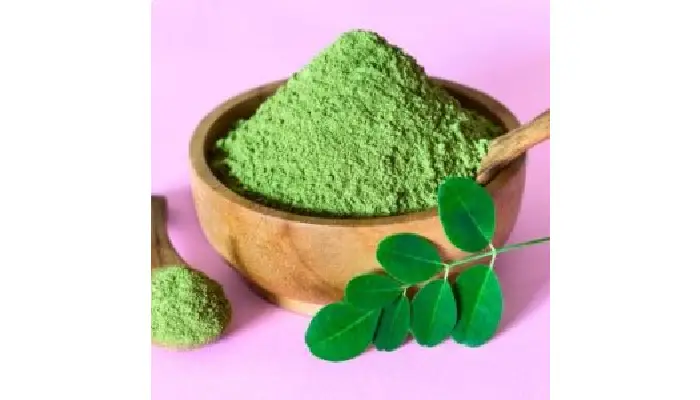In today’s wellness-driven and eco-conscious marketplace, brands involved in herbal product manufacturing are facing increasing pressure to adopt sustainable sourcing practices. With growing consumer demand for natural and organic remedies, the herbal powder export from India has witnessed exponential growth in recent years. However, as opportunities expand, so does the responsibility to ensure ethical and sustainable sourcing.
For businesses looking to build credibility and long-term trust with consumers, sustainability is no longer a buzzword—it’s a necessity. Here’s why sustainable herbal sourcing matters for your brand and how it directly impacts your growth, reputation, and compliance.
The Booming Herbal Market and India’s Role
India is one of the world’s largest producers and exporters of herbs and herbal products. Its rich biodiversity and centuries-old Ayurvedic traditions make it a global hub for herbal raw materials. The country exports a wide range of herbal powders, including ashwagandha, neem, tulsi, moringa, amla, and shatavari.
According to industry reports, the herbal products market is expected to grow at a CAGR of over 6% globally, with herbal powder export from India contributing significantly to this rise. This momentum, however, comes with an obligation to ensure that herbs are sourced in a way that supports environmental, social, and economic sustainability.

What Is Sustainable Herbal Sourcing?
Sustainable herbal sourcing refers to the practice of obtaining plant-based ingredients in a manner that protects the environment, supports local communities, and ensures the long-term availability of these resources. It involves:
- Ethical harvesting methods
- Fair trade practices
- Ecological cultivation
- Biodiversity conservation
- Transparent supply chains
For businesses involved in herbal powder export from India, these practices not only uphold global ethical standards but also enhance brand value and trust among international buyers.
Why Sustainable Sourcing Matters for Your Brand?
Consumer Trust and Brand Reputation
Today’s consumers are more informed and conscious of how their purchases impact the planet. They seek brands that are aligned with their values—especially in the wellness and herbal product sectors. By committing to sustainable sourcing, your brand can:
- Build emotional connections with eco-conscious consumers
- Differentiate itself in a crowded marketplace
- Earn brand loyalty through transparency and ethical practices
A traceable and responsible supply chain is seen as a mark of authenticity, which is especially important in export markets.
Compliance with International Standards
As global regulations around herbal and organic products tighten, exporters must adhere to stringent guidelines on traceability, safety, and sustainability. For instance:
- The European Union and United States have strict requirements for organic certification, permissible residues, and harvesting practices.
- Good Agricultural and Collection Practices (GACP) are increasingly becoming standard requirements for herbal product exports.
Adopting sustainable practices in herbal powder export from India ensures that your products meet these regulatory standards and avoid customs or legal issues abroad.
Long-Term Supply Chain Stability
Unregulated and excessive harvesting can lead to the depletion of medicinal plants, making supply chains vulnerable. Sustainable sourcing ensures that:
- Plant species are not endangered or over-harvested
- Soil and ecosystem health are maintained
- Farmers and cultivators have consistent and reliable income
This long-term stability is critical for your brand’s continuity and reputation, especially when dealing with international buyers who demand reliable and ethical sourcing.
Support for Local Communities and Farmers
Many herbal powders are sourced from rural and tribal regions in India. By adopting fair trade and sustainable sourcing, you ensure:
- Fair wages and working conditions for farmers
- Investment in local infrastructure and education
- Empowerment of women and marginalized communities
When these stories are shared with consumers, they resonate deeply and foster brand loyalty. Ethical sourcing is no longer a backend operation—it’s a front-facing value proposition.
How to Implement Sustainable Herbal Sourcing?
If you’re a brand or business involved in herbal powder export from India, here are steps to adopt sustainable sourcing:
Choose the Right Suppliers
Work with certified organic farms, tribal cooperatives, and verified GACP-compliant suppliers. Build long-term relationships with those who are committed to ecological balance.
Invest in Certifications
Look for or help your suppliers obtain certifications like:
- USDA Organic
- India Organic
- Fairtrade
- GACP
- Forest Stewardship Council (FSC) for wild harvests
These credentials add credibility to your products in the export market.
Practice Transparency
Share your sourcing practices openly with your customers. Use storytelling to explain where your herbs come from, how they are harvested, and the communities involved. This builds authenticity and consumer engagement.
Audit Your Supply Chain
Conduct regular audits and traceability checks to ensure compliance. Partner with NGOs or third-party verifiers to assess the social and environmental impact of your sourcing methods.
Future Trends in Sustainable Herbal Sourcing
- Blockchain in supply chains: Enabling better traceability and proof of origin for herbal products.
- Climate-resilient agriculture: Especially important for herbs like ashwagandha and moringa that are affected by temperature and rainfall variations.
- Regenerative farming: Going beyond sustainability to actually improve soil health and biodiversity.
Brands that adapt to these trends early will have a competitive edge in the international market.
Conclusion
Sustainable herbal sourcing isn’t just about compliance—it’s about commitment. For businesses involved in herbal powder export from India, embracing sustainability is a strategic move that brings long-term benefits in reputation, reliability, and regulatory ease.
By ensuring ethical harvesting, supporting farming communities, and protecting biodiversity, your brand can play a pivotal role in shaping the future of herbal wellness. And in a market where consumers care deeply about what they consume and where it comes from, sustainability can be your most powerful brand story.

Fran Bullock, a literary explorer rooted in the charm of England, unearths stories that resonate with the echoes of history. With a quill dipped in nostalgia, she pens tales that bridge the past and present, weaving narratives that captivate the soul.




